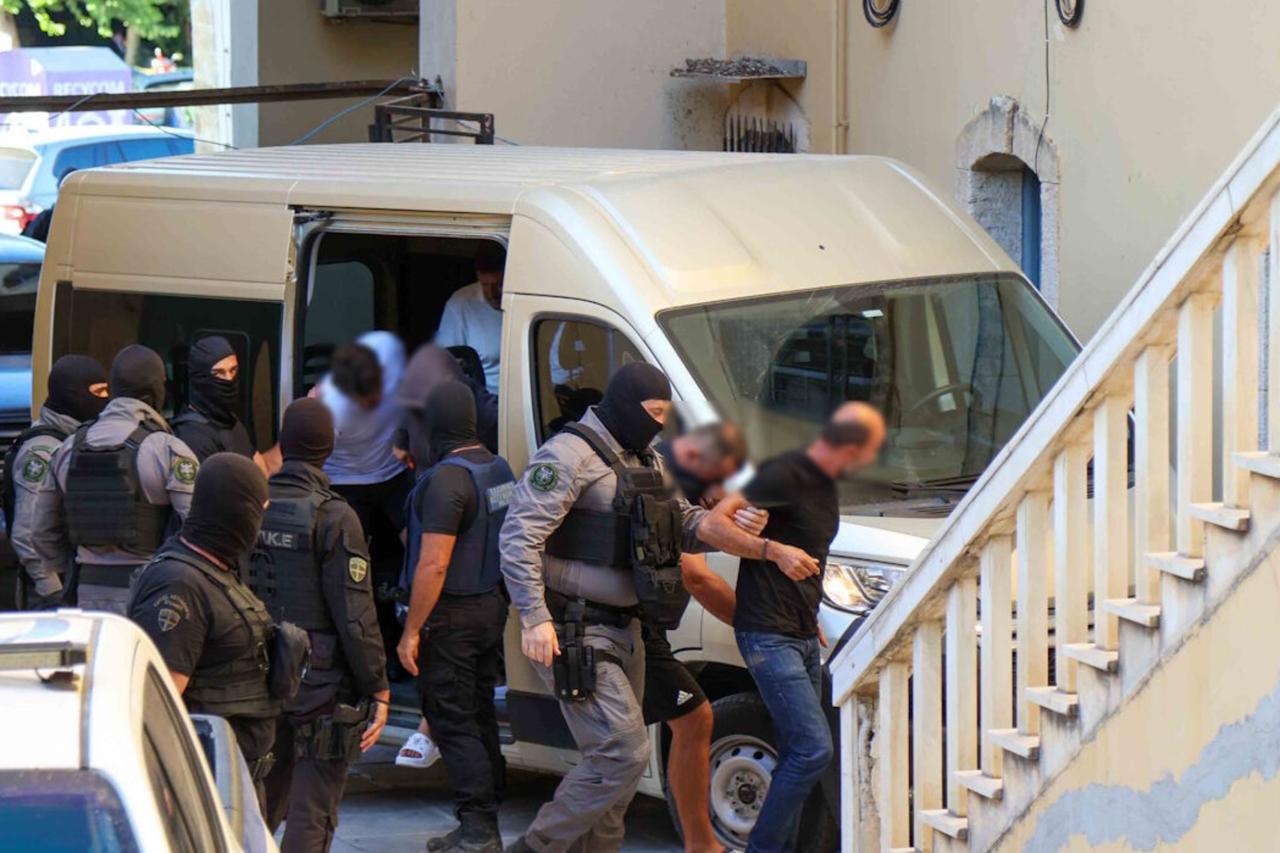
Greek police are investigating what local media call the Cretan mafia.
The probe began with drug and weapons trafficking in Chania but has now grown to cover alleged blackmail, money laundering, and influence over church appointments.
The case involves businesspeople, convicted criminals, uniformed officers, and clerics. Two separate case files are now in play. The first targets drugs and arms, while the second examines property schemes, extortion, and attempts to sway public and religious officials.
Police used wiretaps, undercover officers, and surveillance to build evidence. They tracked financial flows, seized explosives, and recorded threats, as reported by Lifo.
The investigation remains open, with prosecutors expected to bring more charges in the coming weeks.
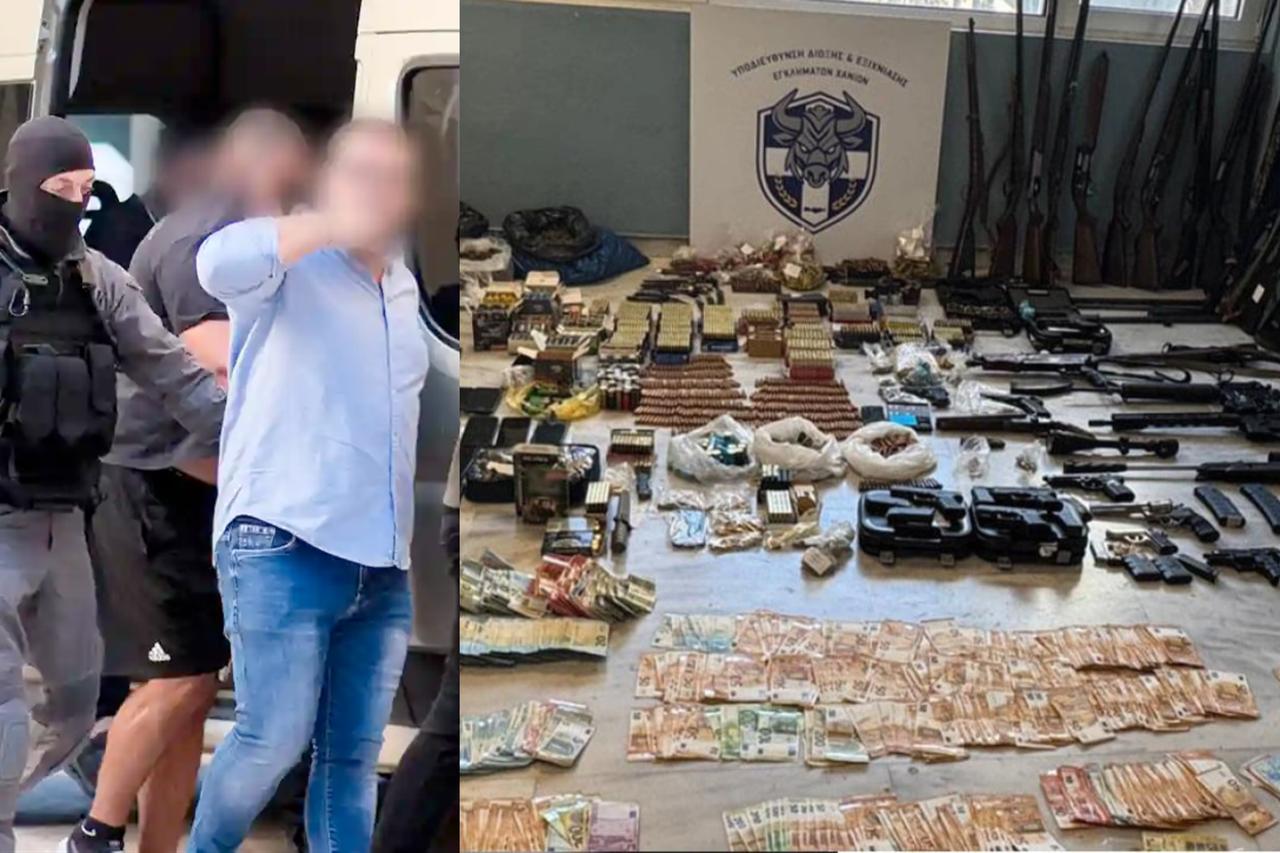
At the center of the case are two brothers who own a hotel and beach bar in Stavros, Akrotiri.
According to Lifo, police say they acted as leaders of the group. A gym owner in Kolymbari known as “Patoboukalos” and a 68-year-old inmate called “Strategos” are also identified as senior figures.
SKAI reports that 90 people appear in the case file. They include entrepreneurs, a police officer, Air Force staff, and other inmates. The network relied on a hierarchy that assigned tasks, controlled supply chains, and managed finances.
The organization used nicknames such as “Angela,” “Mikros,” “Australianos,” and “Bigalis.” “Angela,” the wife of a suspected leader, allegedly acted as cashier, receiving drug money in her accounts and paying bills directly.
SKAI describes three main sales areas in Chania: the Park of Peace and Friendship, the Venetian Harbor, and 1866 Square.
These areas drew both residents and tourists, making them profitable hubs for sales of cannabis, cocaine, and heroin.
Street dealers operated in public places and hid stashes in bushes or street corners. The group also used “no-contact” methods. In one case, drugs were left inside a car that was unlocked remotely for the buyer, who then left the money inside before the car was locked again.
Wiretaps published by Proto Thema capture the blunt tone of these exchanges. Members spoke openly, sometimes rejecting coded language. One dealer told a buyer, “I am not a restaurant, brother, we sell drugs here… only heroin or coke.”
Police say the group carried out 5,800 drug sales over eight months. Lifo reports the total included 41 kilograms of cannabis, 9 kilograms of cocaine, and more than 2 kilograms of heroin. The turnover is estimated at more than almost $3.5 million.
SKAI describes how profits were laundered through legal storefronts and electronic transfers. Money was moved through POS systems, IRIS, and bank accounts. Businesses like parking facilities served as cover for sales.
Even daily expenses were tied to the trade. In one call, a leader directed his partner to expect a $175 transfer “to pay the electricity.” Small-scale transfers like this show how street cash was absorbed into household and business accounts.
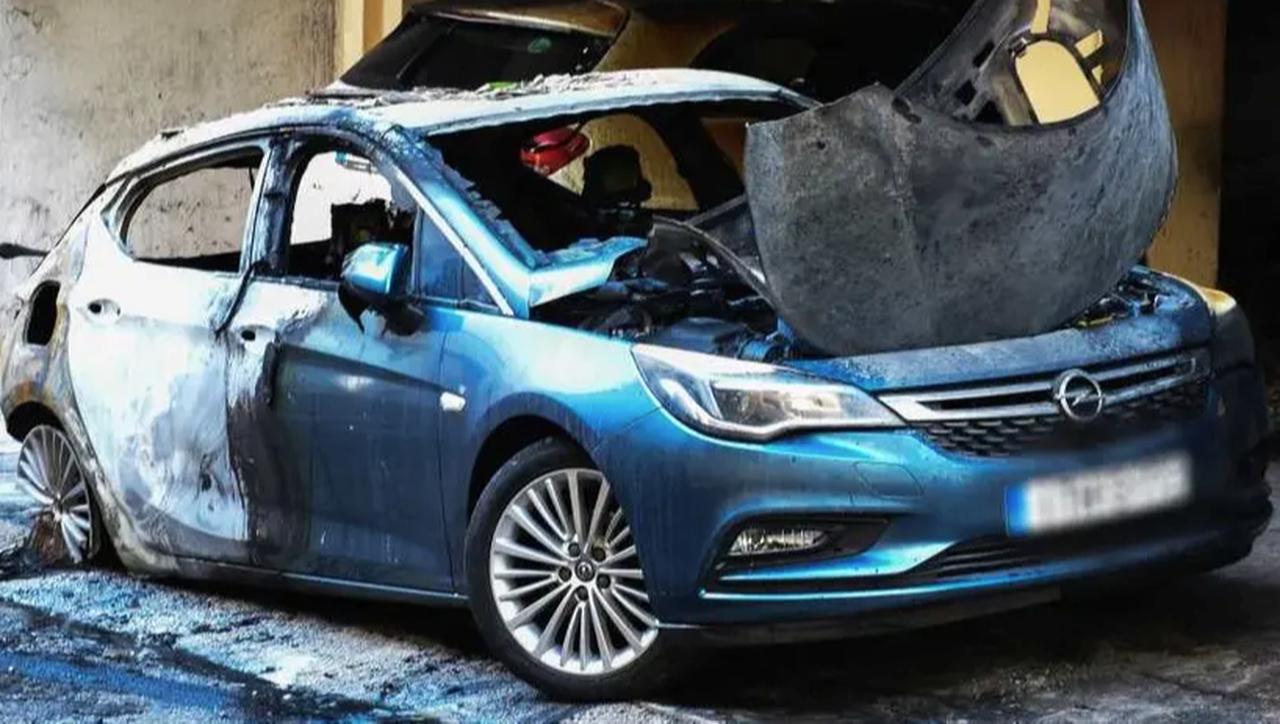
The Greek mafia case goes beyond narcotics.
Reports detail a weapons arm with nine members who used coded words such as “koufeta” for ammunition. Weapons were marketed via online apps with photos sent to potential buyers.
The network has also been linked to a Jan. 24, 2024, bomb attack on the Chania home of a police officer who had made past arrests. “Patoboukalos,” already in prison, is named as the instigator. Another inmate is accused of helping source the device, while two other men were identified as executors.
The attack demonstrates the group’s capacity for violence and its willingness to target law enforcement. Police believe it was meant as retaliation for earlier investigations.
Police presented an extensive cache of weapons and materials seized during the raids, including:
These seizures underline the group’s dual role in both the drug trade and arms trafficking.
The investigation uncovered ties with uniformed personnel. It has been reported that a police officer nicknamed “Gomena” who allegedly warned the group about police operations.
Air Force staff also appear in the file. One worker known as “the cook” allegedly processed cocaine into smokable form and handled stash points. Another is accused of distributing cocaine in a nightclub in Platanias, where tourists used bathrooms to consume the drugs.
These links to uniformed personnel highlight how the group sought protection and extended its distribution into nightlife spaces. The use of clubs gave access to cash-paying customers and masked the trade within tourist crowds.
One of the most striking elements of the Cretan mafia case is the alleged seizure of monastery land. Lifo reports the brothers took over about 200,000 square metres belonging to the Holy Monastery of Agia Triada in Chania.
Police say the then-abbot signed a certificate that removed the land from church property records. He was later removed by the Metropolitan of Kydonia and Apokoronas. Using that paper, the brothers sold the land to investors of Israeli interests at a high price.
Investigators say the abbot was blackmailed with private videos and eventually acted for the group. In recorded calls, one suspect bragged of “12 videos” and added, “only murders we have not been ordered yet to do.”
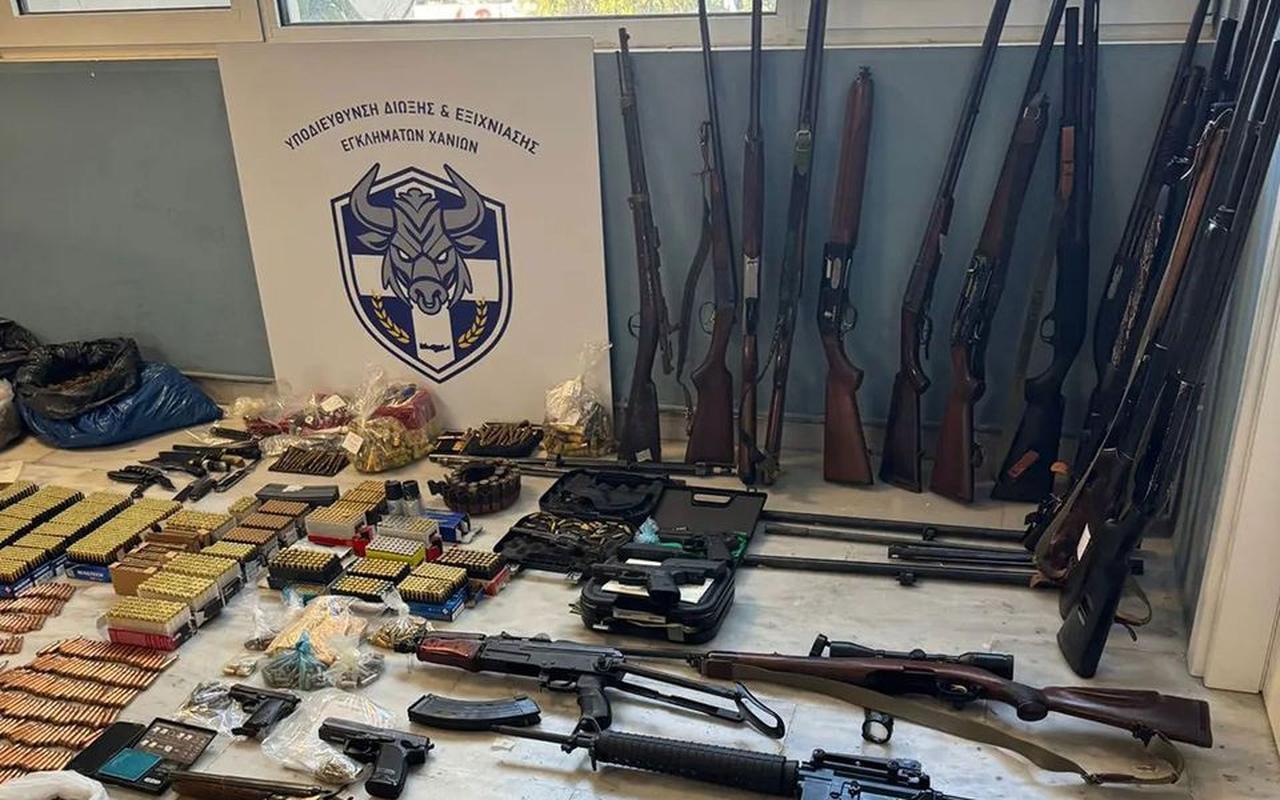
The group allegedly also sought to exploit the General Hospital of Chania.
One hotel owner offered his property for lease through a direct award contract, as reported by Kathimerini. The rent was set at $18,600 per month, with $4,200 marked as kickbacks to public officials. “The state will pay you, do you understand what I am saying?” he told a potential partner.
When he offered his own hotel, the price rose to $29,000 per month. He also spoke of using contacts in journalism to avoid negative coverage. Calls mention a lawyer who would draft agreements to hide the bribes.
The same suspect pushed the mayor of Chania after the municipal council voted against the lease. He described the mayor as “scared” and said he had “sewn a suit” for him if the issue caused problems.
The case also includes direct extortion.
A Chania businessman active in church affairs complained to police after threats from the two brothers, as reported by Kathimerini. They claimed to hold a USB with personal material of an archimandrite and demanded money, using the phrase “give us the lettuce.”
Lifo notes other attempts at influence. The brothers sought to change the designation of 6,000 square meters of their own property through forestry office contacts. They also interfered in private disputes, offering “mediation” services.
The file records efforts to collect around $23,300 from a contractor on behalf of a friend. These actions show a pattern of using pressure and media ties to turn influence into money.
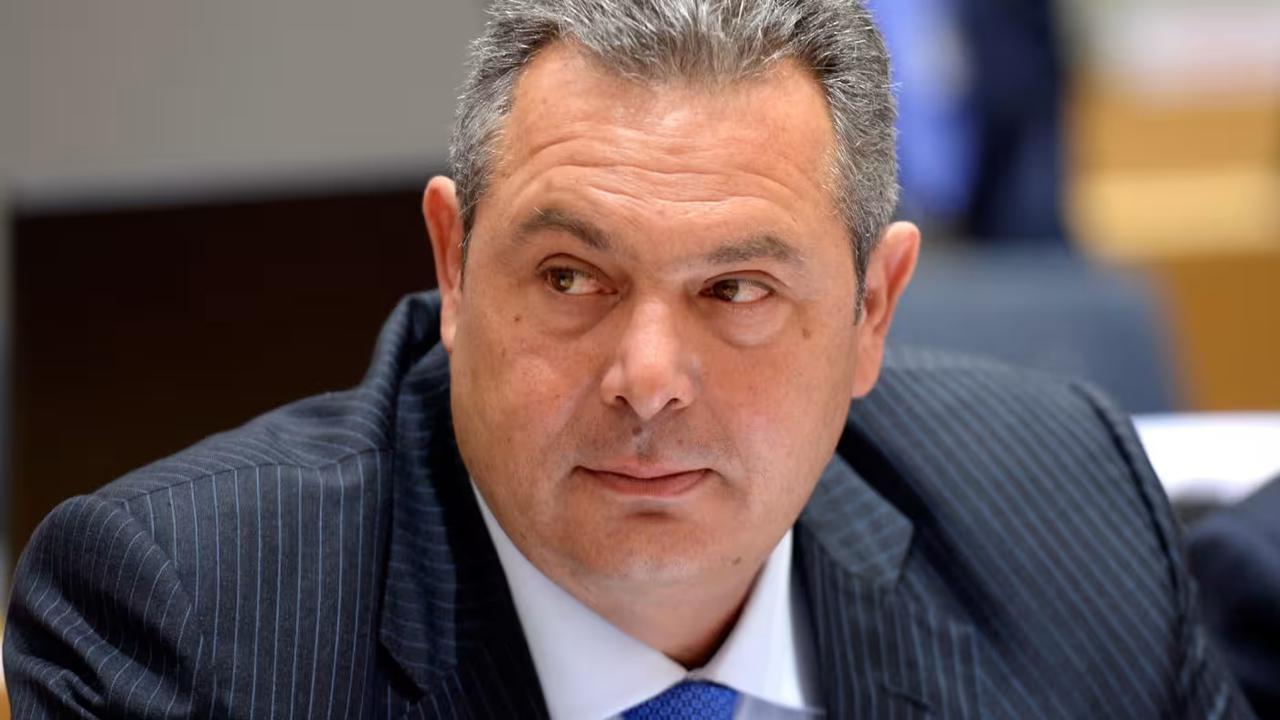
The mafia case widened when police captured calls between the alleged leader and former Defense Minister Panos Kammenos.
The leader said an archimandrite was “our man” for the Chania bishopric, as reported by Kathimerini. He claimed support from the Souda base and even “Trump.” Kammenos replied, “If it depends on the Americans, I will take care of it.”
According to the case file, the exchange did not involve money but relics of Saint Lazarus. Kammenos later confirmed he had spoken to the man but said he neither contacted the archimandrite nor assisted him.
He denied further involvement and accused his critics of trying to scare him.
The alleged use of relics as bargaining chips has fueled further scrutiny. It added a religious and political dimension to a case already spanning drugs, weapons, and public corruption.
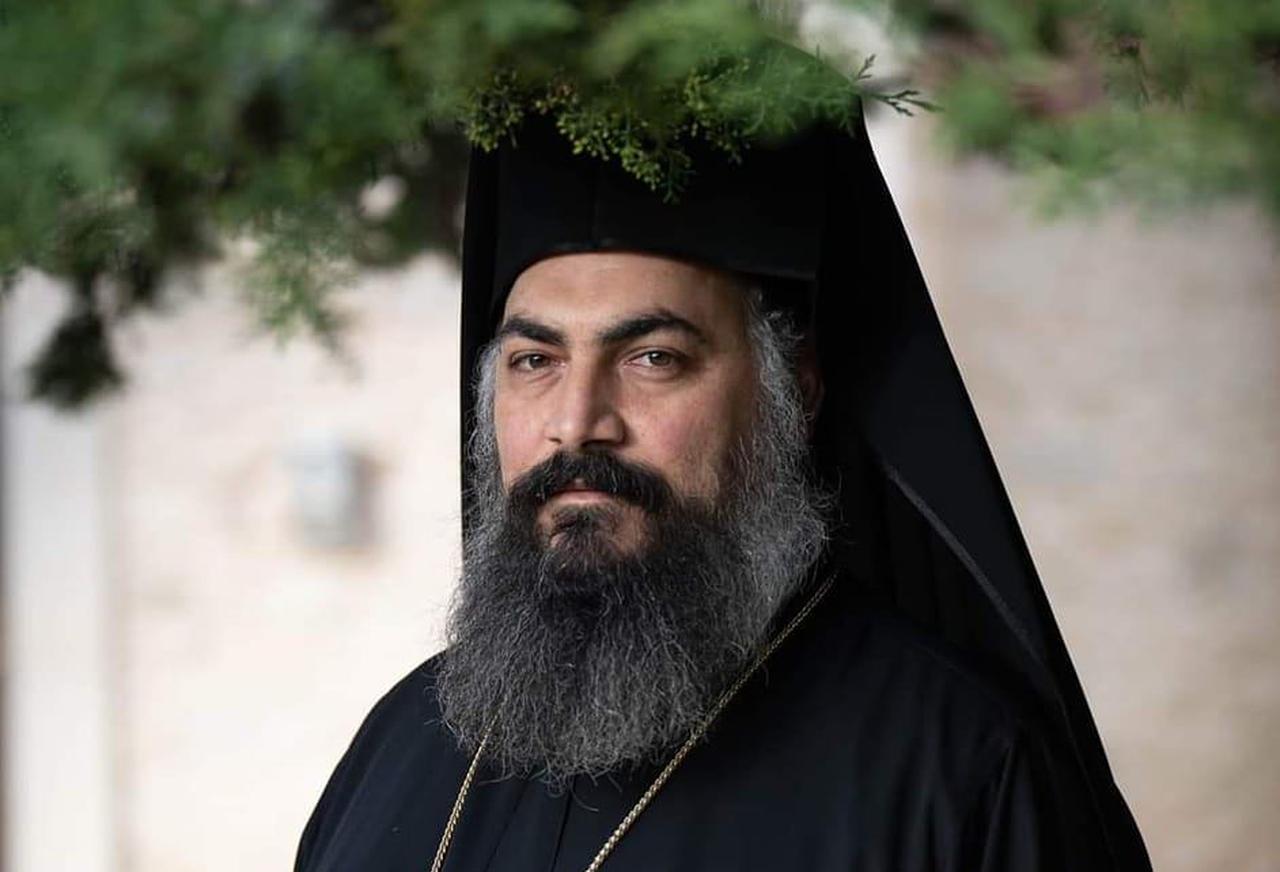
Archimandrite Panagiotis Melchisedek Ambelikakis publicly responded to the claims.
In a statement, he said “dark circles” were trying to implicate him unfairly, as reported by To Vima.
He stressed that he never asked for help in church elections and never offered relics as a trade. “My respect for holy relics is absolute,” he stated, adding that his contact with the accused was limited to normal church life.
He also underlined his respect for the Ecumenical Patriarch and rejected attempts to question church unity. He insisted he did not yield to any pressure and would not compromise his vows.
The case gained momentum after a January 2025 arrest in Chania.
Police found drugs, heavy weapons, and two bombs in a suspect’s home. Lifo reports this led to eight months of undercover work. Two officers posed as hospitality workers and gained access to the network.
The operation included 35 targeted actions and resulted in 49 arrests.
Kathimerini says 33 suspects have already appeared before a prosecutor and will testify this week. Police spokesperson Konstantia Dimoglidou said the second case file has been sent to prosecutors, who are expected to issue charges soon.
The investigation is ongoing, and new arrest warrants may follow. Authorities continue to analyze call transcripts, seized material, and money flows.
The Cretan mafia probe reveals links to drugs, weapons, and religious influence. The next stage in court will show how strong the case is and how far the network has reached.